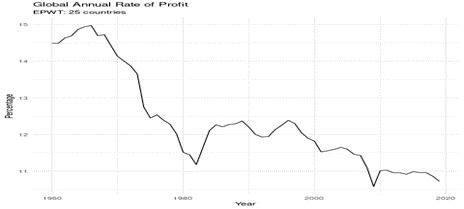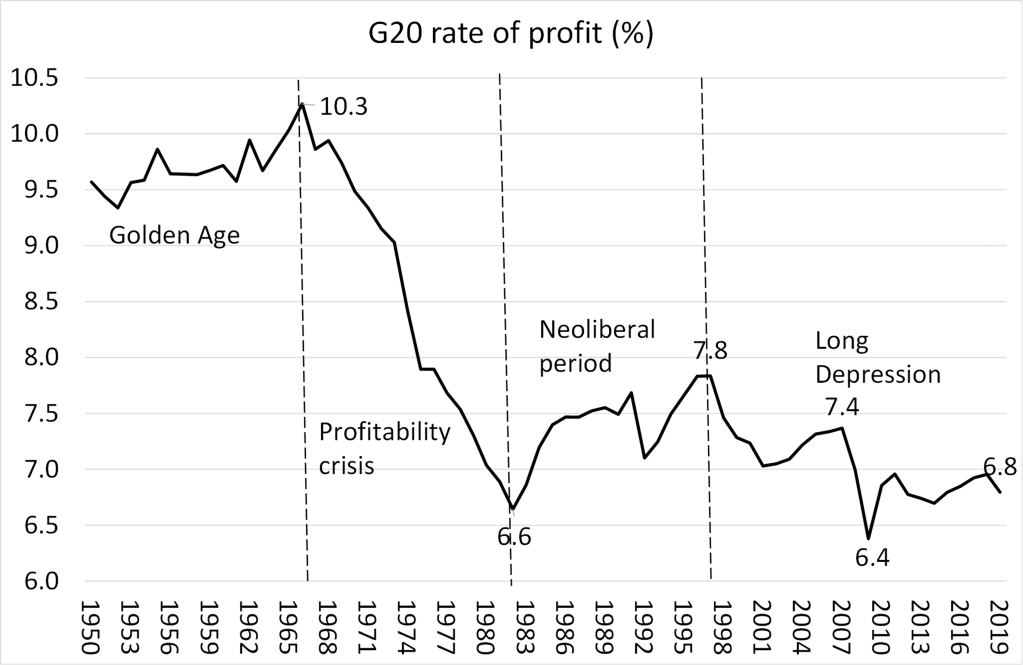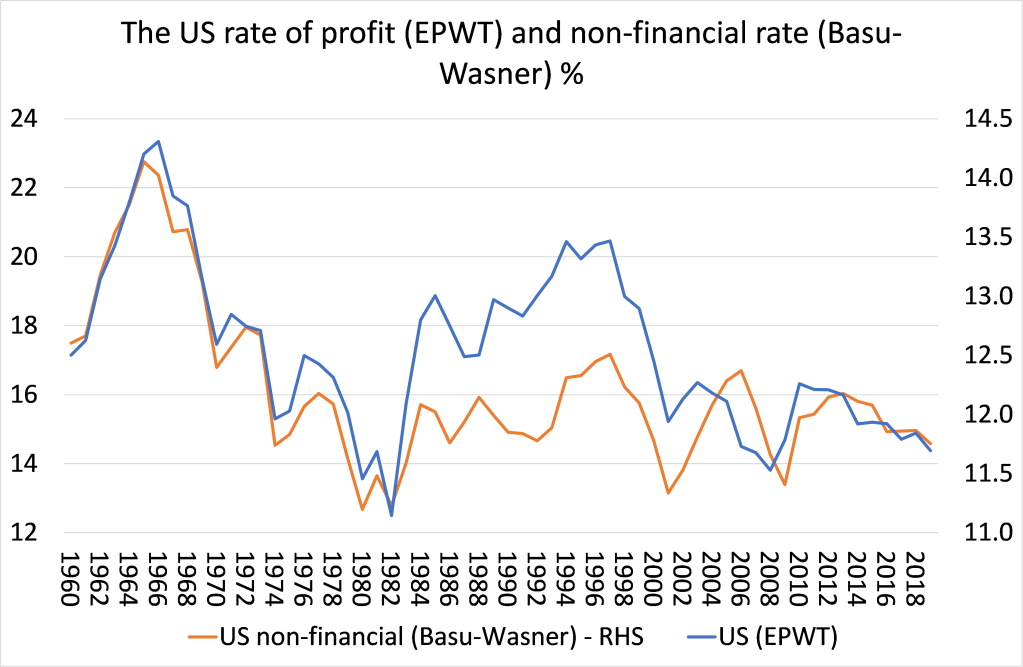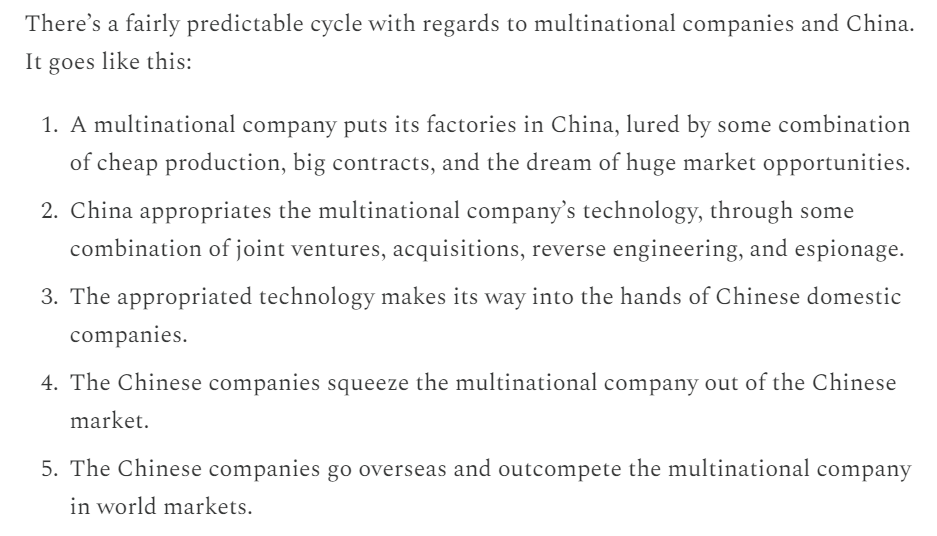Marx was probably the most important intellectual of the 19th century, based on impact, but it’s generally believed he was wrong about his major predictions, and thus his theories are largely garbage. I have some sympathy for this view, but let’s look at the counter-argument.
Marx said that Communism would develop from industrial nations, with the proletariat, finally realizing they were producing all the value, taking control. What happened instead is that the two major “communist” revolutions happened in agrarian societies: Russia and China, and while China’s hard communist period (pre-Deng) advanced China significantly, they didn’t become a massive surplus society until market reform took place.
If you call a dog a duck, it’s still a dog.
The correct response is simply that they weren’t Communist nations: they called themselves that, and China still does, but that’s ridiculous. They couldn’t be, because the proletariat wasn’t in charge. (One might make an argument that it was, briefly, in Russia, but if so it didn’t last.) The proletariat couldn’t be in charge, in agrarian societies they hardly exist.
Central to Marx’s argument is that over time the global rate of profit under capitalism will fall. That argument has been dismissed, but there’s a good case that it is, it’s just taking quite a while. Michael Roberts makes the case, and I’ve included some of the key graphs below.
Global Rate of Profit:

x

US profit rate.

Now it’s fair to say that technical arguments can be made against these charts, but they support the general idea of lower profit over time. The crisis of capitalism is expected to occur when surplus produced by the system falls to catastrophic levels.
Again, I could argue against this, but the simplest argument is that Marx didn’t foresee climate change and ecological collapse and they’re going to hit first.
Arguing that communism hasn’t failed because those who claimed to be communist does smack a little of neoliberals and other ideologues screaming that their system has never really been implemented, so their ideas are still fine, but Marx was clear about the process of how Communism would occur and it didn’t include revolutions in agricultural states. By Marx’s dialectic, that wasn’t possible: you have to go through capitalism first.
I don’t, personally, expect real communism to happen any time soon. Even if Marx was right, the timer is running out. Perhaps in collapse, workers will, indeed, unite and take over. The problem is primarily what Marxists call “class consciousness”: the realization of shared interests and that the people running the system are both evil and stupid—they produce terrible results, over and over again. They are sociopath & psychopaths or people who might as well be, because the decisions they make are psychopathic.
They aren’t needed. Oh, the scientists and engineers are, certainly, but the capitalists? No. We just need another system of allocating capital which doesn’t make it accumulate in the hands of the worst people.
If that happens, we’ll have something better, whether or not it’s communism.


For those advising an attempt to take over the Republican Party. I think candidly that that is even less likely than taking over the Democratic Party.
I live in, and am involved in local politics and environmental activism in, a region that, despite being in a very Blue State, is quite conservative, with some of the towns around here reliably voting for GOP candidates — in Massachusetts — at rates above 60 and 70% (other towns are more reliably Democratic, these differences are fascinating at a sociological level, and quite complicated).
I am in coalition with these conservatives on a critical important local issue where 90 percent of the populace agrees that a corporation is lawless and must be stopped. I grew up with some of them, and know them well, we are of the same small communities (this is also true of the liberals, the left, the non-engaged, the right-wing and left-wing online street fighters, many more — these are smaller towns for Massachusetts, with one exception).
Despite this coalition, or rather because of it, and dealing with them, I think it’s unlikely they are going to be a good candidate for entryism. For one thing, they are viscerally and often just off the wall in their hardcore anti-Communism and 1950s-era redbaiting.
The other thing is that they have as kind of their Ur-Principle the idea that Private Property Is Sacred (this is, as Ur-Principles so often are, is frequently and seemingly without dissonance contradicted by them in the actual practice of their lives). They do not distinguish between the person owning a small cottage and Elon Musk; for them, private property is private property.
A third factor is that fifty years of talk radio, cable news, and now Facebook and other social media have marinated them in a culture of querulous suspicion and anti-reason; they fall for just lunatic conspiracy stuff, and while some of them are just naturally intelligent enough that they fight through this and make real contributions to our local governments, it’s still their native idiom, if that makes sense (like, believing basically every election is stolen; despite the minimizing of certain interlocutors of Trump’s misdeeds, this is a real one, this baseless accusation of fraudulent or stolen elections — this is a corrosive rhetorical move, and one that makes the actual practical life of our bodies politic in the real world more difficult.
Nor is Russiagate apposite here; Russiagate was nonsense, but Hillary Clinton, of whom I am not a fan, did show up to Trump’s 2017 Inauguration; she did acknowledge the vote totals were correct, and that she legitimately lost in the electoral college; this is _categorically_ different than Trump’s conduct in 2020-21).
A fourth factor: they genuinely dislike Difference and a pluralistic and open society; many of them are openly bigoted towards LGBTQ people. We had a Klan presence here in southeastern Massachusetts into the 1950s, and that impulse didn’t just go away. Indeed, my own Town’s High School, from which I graduated 20+ years ago, had a significant problem with what can only be described as anti-Semitic and Nazi-sympathizing public behavior by the football team. We have the local evangelical holy rollers running for School Committee (in Plymouth, Mass.) talking about banning books, in just total disregard for the U.S. and Mass. Constitutions.
They are also obsessed with culture war nonsense. Just, like, obsessed.
The thing I should emphasize: the conservatives are often extremely intelligent, and will see any kind of entryist from a mile away. I should also note I actually quite like many of them at a personal level; I don’t think they are bad people (some are, but not most), just misguided and wrong on many issues (sometimes, they are right, and I take coalition with them where it presents itself; this is natural in the parliamentary environment of Town Meeting societies).
Finally, Republicans have their own Machine which is even worse than the Democratic Machine, which at least has to pretend to some notion of human well-being. The GOP Machine in my experience down here are connected to local business elites and are also canny, and just like, wildly amoral, and won’t give up the party without a fight.
So, taken together, and played out across the country, I think it will be extremely difficult to engage in any kind of Left entryist strategy in the Republican Party.
My own strategy is premised on local politics — I live in a directly democratic Town Meeting form of government, and if I want to write a statute for the Town, I can get myself and nine other inhabitants of the Town together and put it before the Annual Town Meeting. That’s a lot of power, so I exercise what power I am able to in order to advance the goals of the Commonwealth thought that guided the authors of the Massachusetts Constitution, and, at a larger level, the American Revolution.